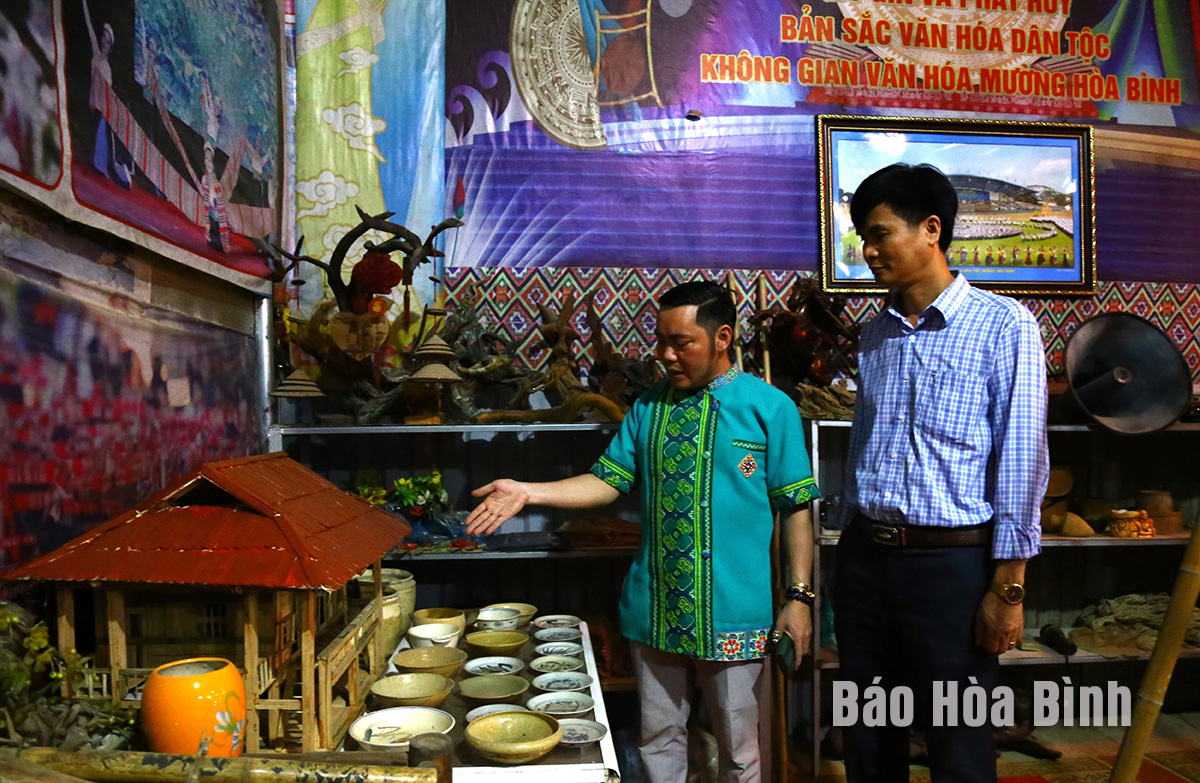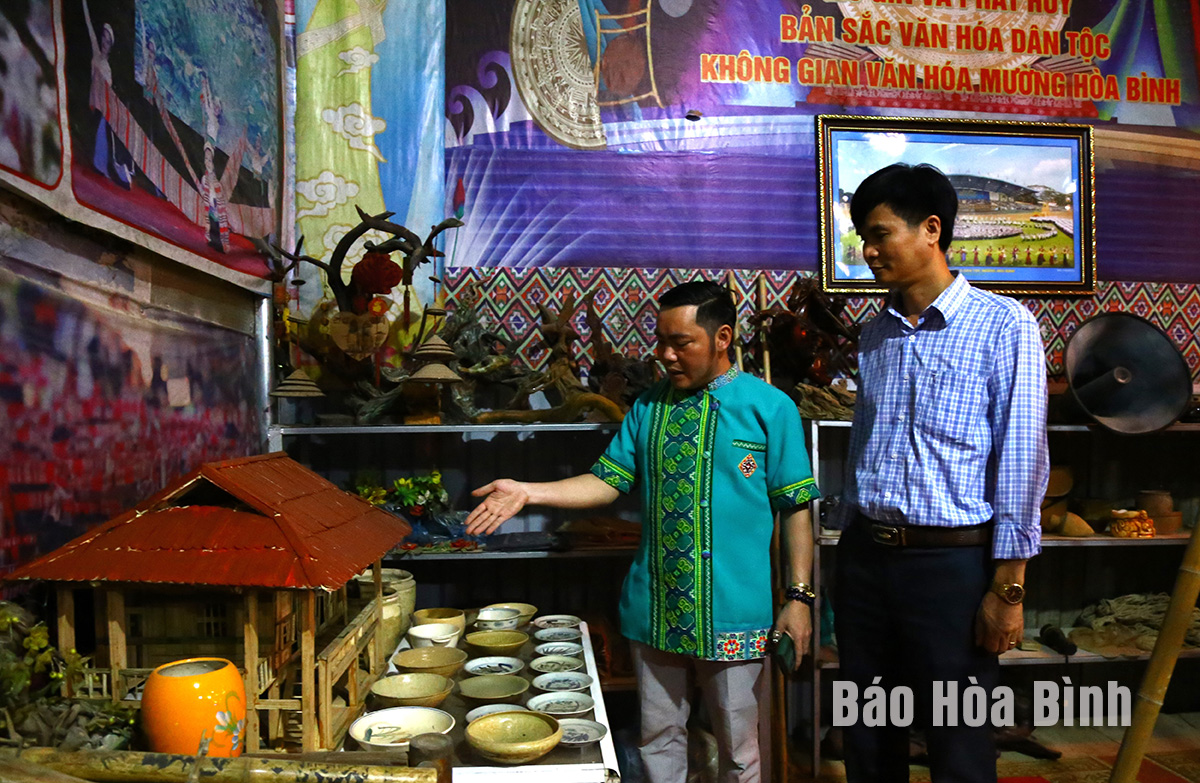
Nguyen Manh Tuan, a Muong ethnic man in Ba Hang Doi town, Lac Thuy district, is known as a young, dedicated, and outstanding artisan who has made significant contributions in collecting, restoring, and preserving national cultural values.

(Photo: Outstanding artisan Nguyen Manh Tuan, Ba Hang Doi town,
Lac Thuy district, introduces artifacts to visitors at Muong cultural space).
Tuan was raised up and nurtured with Mother Goodness worship tradition in his
childhood. In 2012, after working for nearly 13 years in the armed forces, Tuan
demobilised and returned to the locality and, with a great desire to preserve
cultural values of the ethnic group, he restored the Muong stilt house and
studied the ancient and present Muong ethnic customs in funerals, weddings,
festivals, singing dances, gongs, stork instruments, flute pipes, and Muong
language, among others to teach young generation to understand the culture of
their people.
In November 2022, Tuan established a Muong ethnic cultural heritage club where
he can spread the love to his compatriot. The club has attracted the
participation of more than 200 regular members.
Covering an area of 750 sqm, the space displays more than 2,000 artifacts which
are familiar in the daily life in the Muong ethnic people, including 100 gongs;
120 bronze, 200 pottery, and 250 wooden items; 45 animal horn pieces; 150
fabric products, blankets, brocade pillows, costumes; 250 rattan products; 55
ethnic musical instruments; nearly 150 Muong cultural books; and nearly 200
other widgets and composite products, among others.
Besides, Tuan has directed many events of the locality and he has effectively
maintained the training on Muong gong culture, songs, dances, folk games, and
language for young generation. With tireless efforts, the artisan was awarded the title of Excellent Artisan
in the field of social practices and beliefs in 2022.
With numerous contributions to the preservation and promotion of the racial
cultural identity, he is also an outstanding example in charity and social
security work in the locality.
With an increasingly vibrant and widespread emulation movement aimed at building cultured residential areas and cultured families, Yen Thuy District has been making steady progress toward improving both the material and spiritual well-being of its people, while fostering a civilized, prosperous, beautiful, and progressive community.
Once lacking recreational spaces and community facilities, Residential Group 2 in Quynh Lam Ward (Hoa Binh City) has recently received attention for the construction of a new, spacious, and fully equipped cultural house. The project followed the model of state support combined with public contributions in both labor and funding.
The "All people unite to build cultural life" movement, which has been effectively integrated with Kim Boi district’s socio-economic development goals, is fostering a lively spirit of emulation across local residential areas, hamlets, villages, public agencies, and enterprises. In addition, through the initiative, traditional cultural values are being preserved and promoted, while community solidarity and mutual support in poverty reduction and economic development are being strengthened.
A working delegation of the Hoa Binh provincial People’s Committee led by its Permanent Vice Chairman Nguyen Van Toan on June 11 inspected the progress of a project to build the Mo Muong Cultural Heritage Conservation Space linked to tourism services in Hop Phong commune, Cao Phong district.
Born and growing in the heroic land of Muong Dong, Dinh Thi Kieu Dung, a resident in Bo town of Kim Boi district, in her childhood was nurtured by the sweet lullabies of her grandmother and mother. These melodies deeply imprinted on her soul, becoming an inseparable part of her love for her ethnic group's culture. For over 20 years, this love for her hometown has driven Dung to research, collect, and pass down the cultural values of the Muong people to future generations.
In the final days of May, the Ethnic Art Troupe of Hoa Binh Province organized performances to serve the people in remote, mountainous, and particularly disadvantaged areas within the province. These were not just ordinary artistic shows, but they were the meaningful journeys aimed at spreading cultural values, enhancing the spiritual life of the people and contributing to the preservation of ethnic minority cultural identities.



